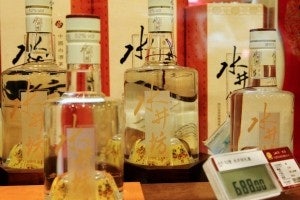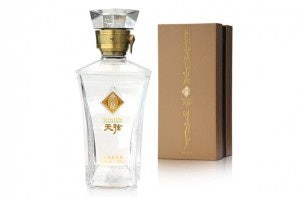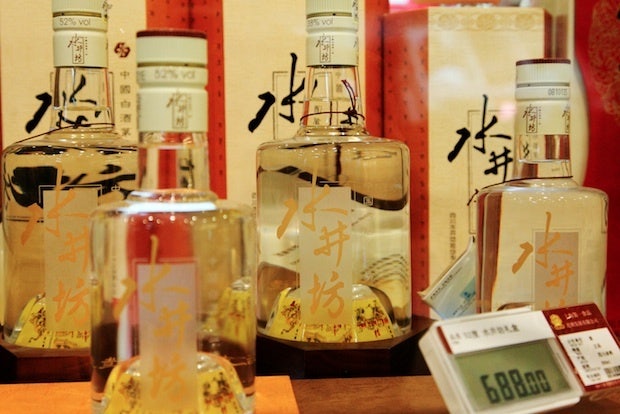Diageo's Scotch Brands Saw Sales Rise 59 Percent At End Of 2012#

Though makers of high-end baijiu -- traditional Chinese spirits -- have reportedly been hit hard by Beijing's ongoing frugality campaign and a military ban on extravagant banquets, sales of imported liquor continue to plow ahead as more Chinese drinkers knock one back at home or in bars with friends. Rising demand for high-end whisky, cognac and vodka among younger, urban, middle-class drinkers are boosting major groups like Britain's Diageo, which recently reported a 13 percent net rise in overall sales in mainland China last year and a whopping 59 percent growth for sales of its luxury Scotch segment.
Cognac makers, too, had an impressive 2012 in Asia in general and China in particular -- as of last summer, the Asia-Pacific region accounted for 62 percent of Remy Cointreau’s cognac sales, with China in particular responding well to intensive marketing efforts by the group for its US$2,500 Louis XIII cognac.
Though Beijing's corruption crackdown apparently hasn't had much of an effect on sales of vodka, cognac or whisky, it may throw a wrench into major international spirits groups' plans to acquire or merge with Chinese baijiu brands. Owing to massive demand — Martin Riley of Pernod Ricard noted last May that “900 million cases" of baijiu are sold in China every year compared to four million cases of imported spirits -- in recent years the likes of LVMH and Diageo have acquired baijiu makers such as Wenjun and Shui Jing Fang.
However, this year luxury groups may not have the same chances to dig deeper into the distinctly Chinese segment.

As China Daily points out this week:
Gao Li, a beverage analyst with Hua Chuang Securities Co Ltd, said the market share of imported high-end spirits in China is still very small, about 2 percent of China's alcoholic beverage market — valued at more than 500 million yuan ($80 million) last year.
"Chinese consumers' demands are diversified and they, especially the young and middle-aged, are curious to taste new things, so I believe the growth is natural," he said.
"However, I am afraid that foreign distillers have to rethink their current (Chinese baijiu brand) merger and acquisition plans in China."
Diageo's Tcheng said during an earlier interview that his company has plans to buy more high-end Chinese spirit brands with long histories and good distribution networks that will fit in well with Diageo's global network.
Diageo controls 53 percent of Chinese baijiu brand Swellfun. The company report said it is the first time it has consolidated the results of Swellfun, which contributed 48 million pounds ($72 million) with an operational profit of 5 million pounds.
Though Diageo may not have a lot of luck adding more Chinese spirits brands to its portfolio this year, as Jing Daily noted last summer, the company is confident that it’ll find a receptive audience for Shui Jing Fang in Diageo's home market of the UK. Originally announced last July, Diageo is in the midst of a rollout of Shui Jing Fang at high-end Chinese restaurants in the British capital as well as high-end department stores and hotels — looking, ostensibly — to tap the growing number of wealthy Chinese tourists, property buyers, and students now seen throughout the city.
